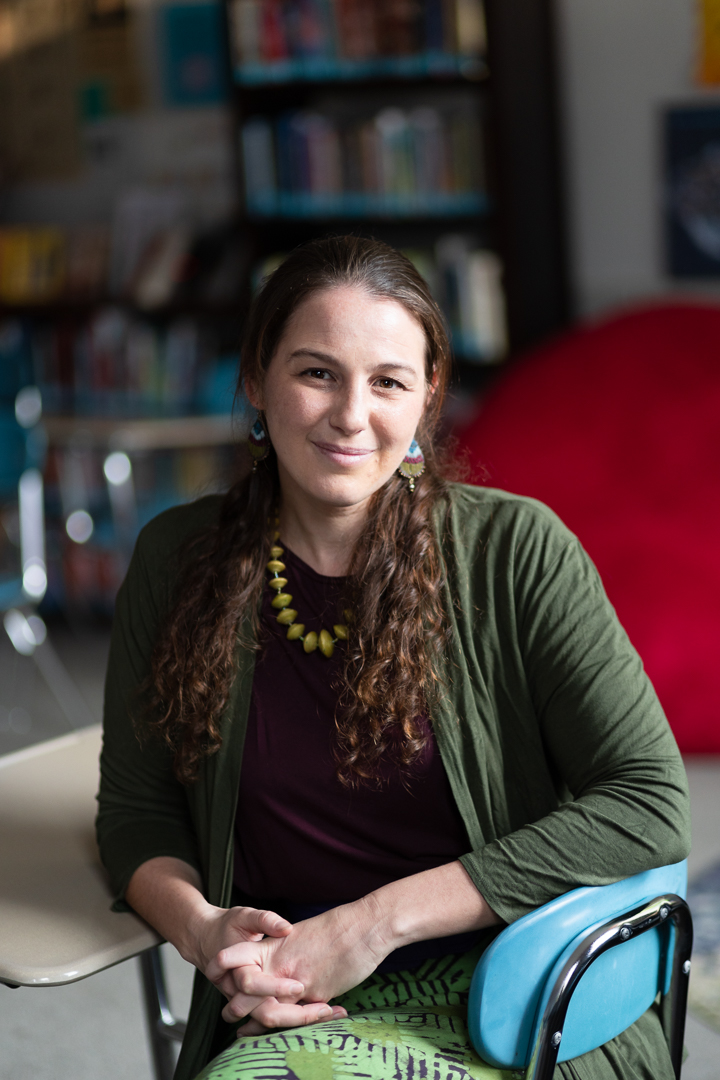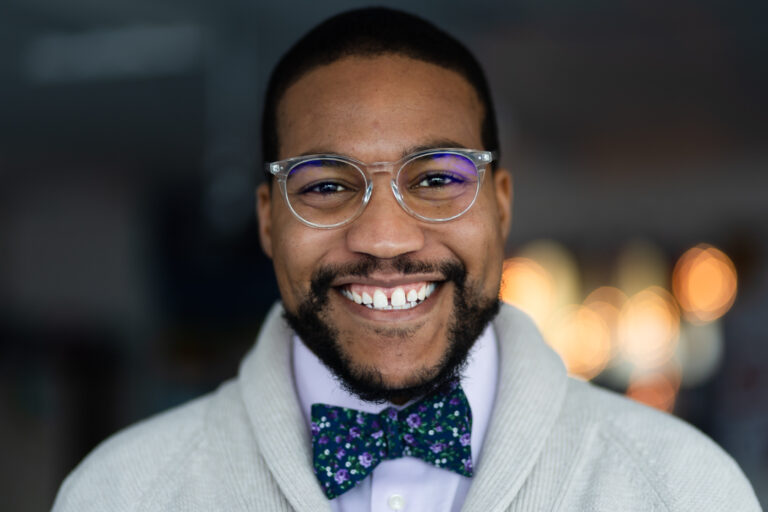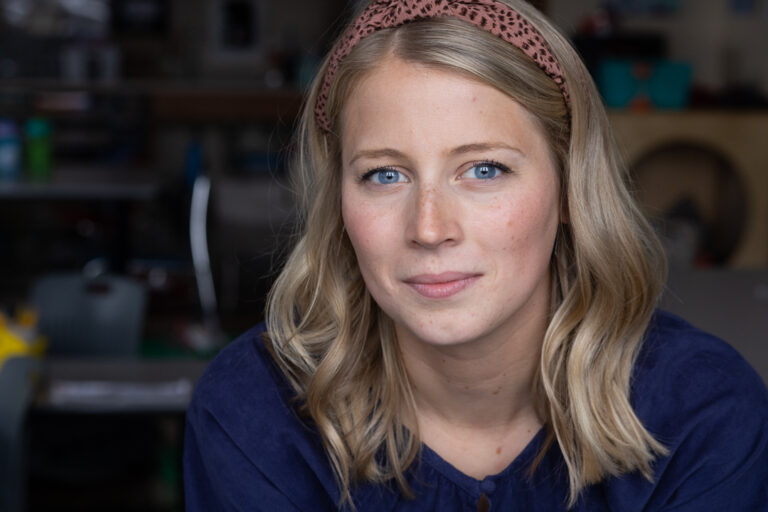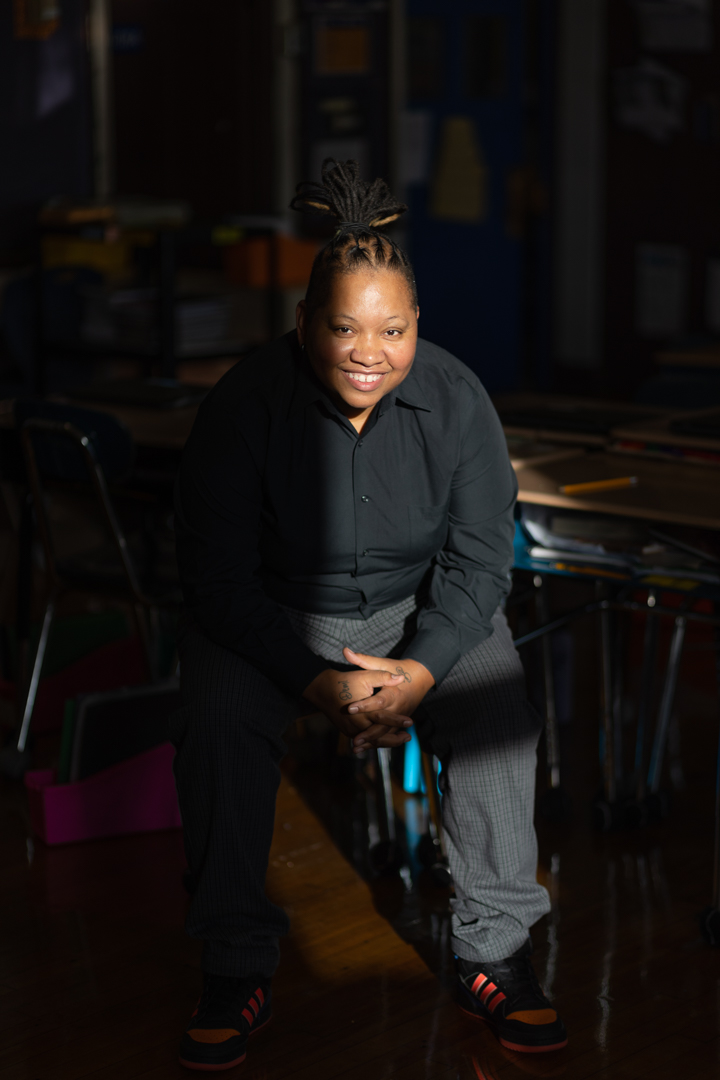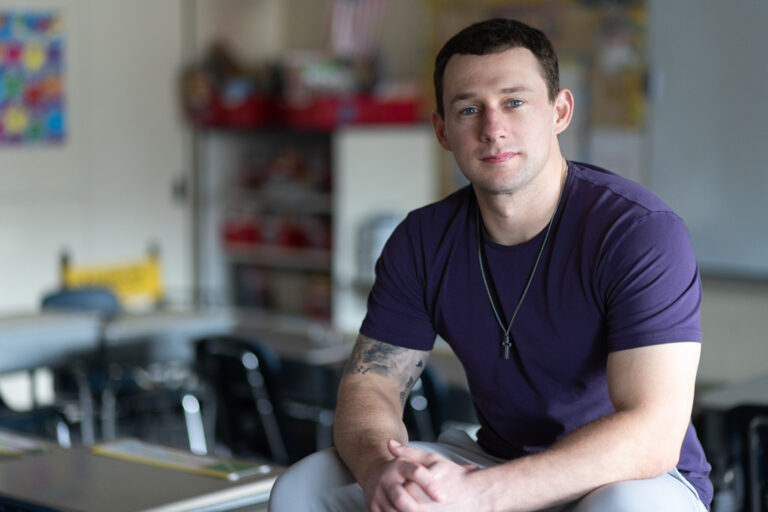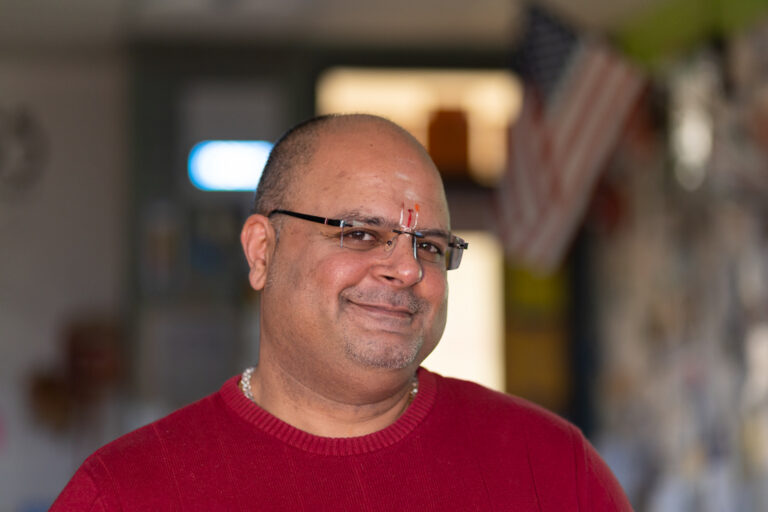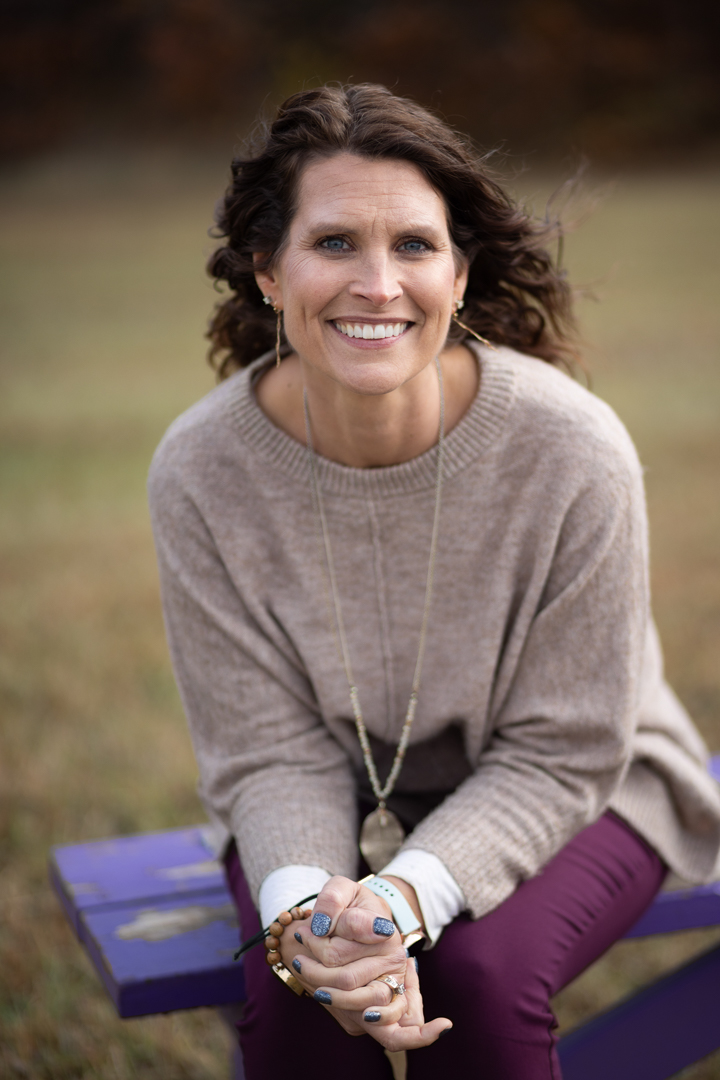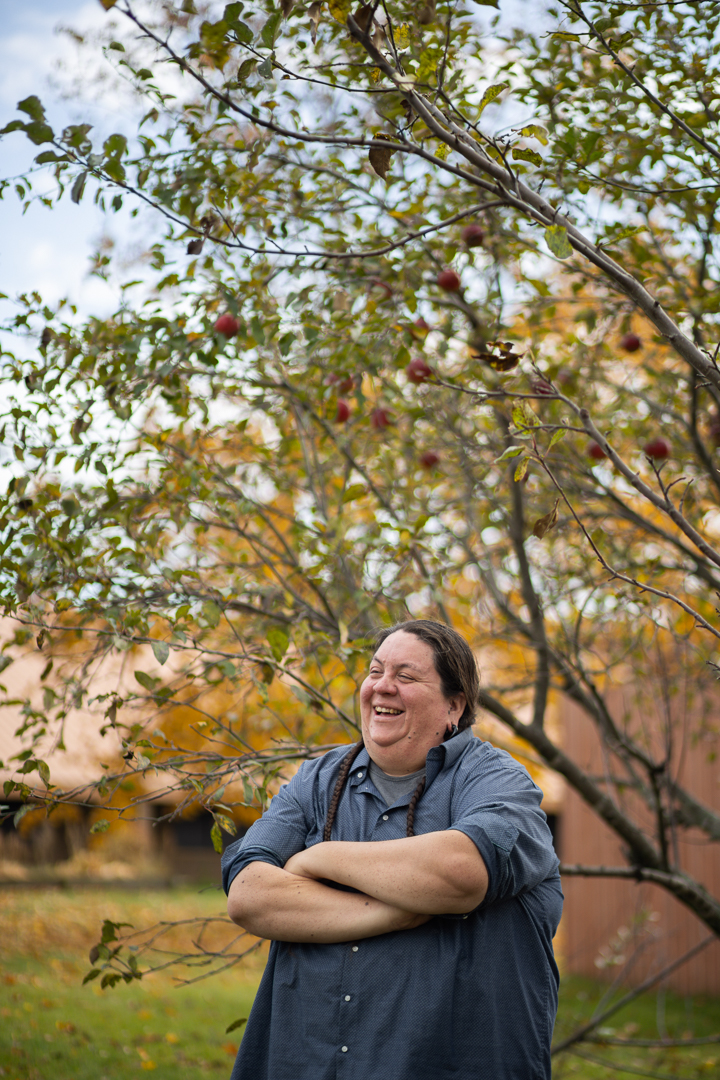Portrait-based stories from Teachers in Their Power. These interviews use photography as the primary visual medium.
I have the honor and joy of teaching U.S. history and civics to recent immigrant and refugee students. My students come from more than 30 countries: from Colombia, to the Democratic Republic of the Congo, to Cambodia. Most of my students have been in the U.S. for less than five years.
I went to school to be a journalist. My financial aid package required that I take on a work-study job. So during my first year of school, I worked with Jumpstart, an AmeriCorps program where they put college kids in Title I preschools.
I wanted to work at the Boston Federal Reserve and go to the London School of Economics. But I graduated in 2009, and there were no jobs available, due to the housing crisis and Great Recession. So I started working at a local public charter school.
I was pretty close with my brother. He ended up going to jail when I was in fourth grade. We were having morning meeting at school, and the question that day was, ‘How are you feeling?’
I was working at The Bridge Home at St. Mary's Women and Children's Center. It’s a shelter for infants to 12-year-olds. If the Department of Child and Family Services pulled a kid from their home, we housed and counseled them.
The bulk of my fifth graders are just excited to see me. They want to talk to you in their downtime. They want to sit by you at lunch, and they want you to come to recess with them. That feeling is the driving force that made me become a teacher.
I grew up in Oak Park in the 1980s. People were all about the melting pot. The idea was that everyone is the same and nobody looks different — we're all part of this collective homogenous blob. One of the drawbacks to that was that I was never really seen.
Early on in my career, I was more afraid of talking to parents. But I had a principal who said, ‘If you're not calling them first with a positive, then when you call them with a negative, it's going to be harder.’ So I tried to do that. And I have had great success with parents trusting me and knowing that I have their kids’ best interests at heart.
Teaching runs in my family. The bell was my grandma’s. She was the last teacher at a one room schoolhouse in Cold Spring, Wisconsin. Because she was the last teacher, they gave that bell to her. She wrote on that card that both her mother and her aunt also taught in that school.
I was full-on ready to be a full-time artist. And then I was invited to be a teacher at a summer institute in Denver, through the Native American Youth Outreach Program. I think it was seeing those kids connect to our traditional arts — part of our cultural inheritance that they had little exposure to before. It was seeing kids connect to our indigenous ways that changed me.
